5 Home Solar Battery Benefits You Never Knew
Solar batteries are a wise investment, especially if you live in California. On average, Californians spend $95.20 on electricity each month- which can put a serious dent in your budget. And while some families see their electric bills go up during the hotter or colder months, solar batteries even out the playing field by storing energy to use when you need it most.
Solar panels create a wonderful way to save money on electricity, but many people are unaware that excess energy can be stored for later use using a battery system. A home solar system battery backup is worth considering if you want to save money and have peace of mind about your home’s energy security.
How Solar Batteries Work with a Solar Power System
Homeowners can achieve energy independence by using solar batteries. Here’s a step-by-step guide to how they work, using a battery paired with a solar system as an example.
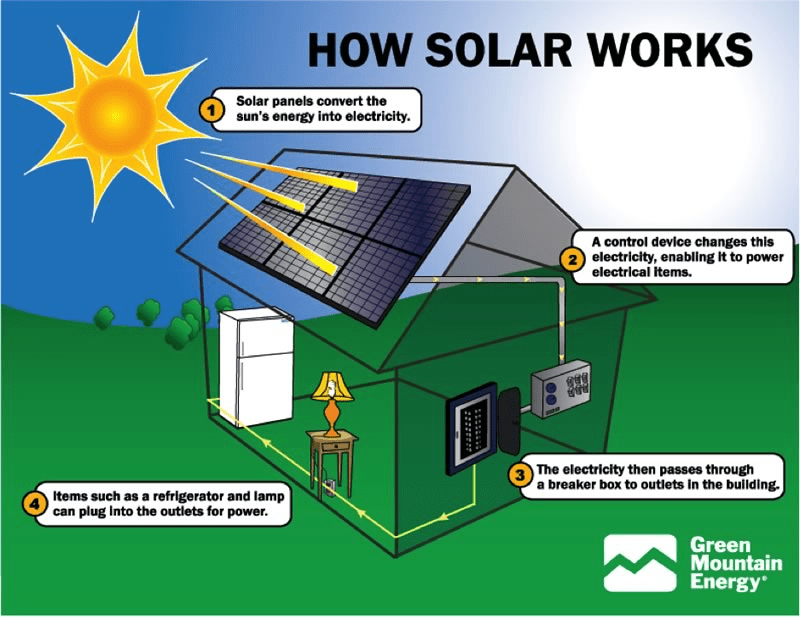
Step 1: Solar Power
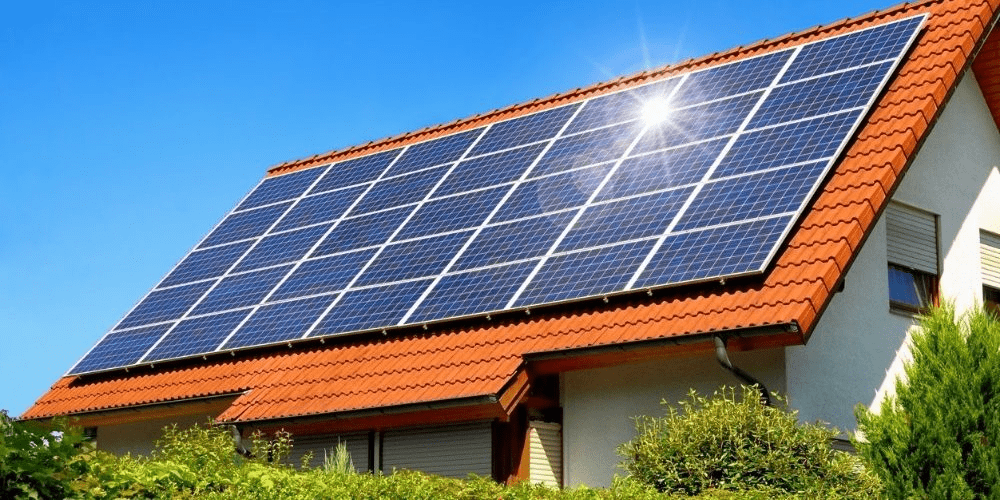
One of the most fundamental elements of life on Earth is sunlight. Plants require sunshine to flourish, and people require sunlight to produce Vitamin D. However, sunlight may be utilized to generate power. Solar panels catch sunlight and transform it into electrical energy. The procedure starts with the solar array on the roof producing electricity.
The panels are exposed to sunlight, which converts visible light into an electrical current. Depending on whether the system employs an AC or a DC battery, the DC electricity generated by the solar system can subsequently be converted to AC power or retained as DC power. More on it in a moment. Solar energy is a renewable and environmentally friendly source of power, making it a popular choice for households and businesses.
In reality, as solar technology gets more economical and effective, the number of solar installations has expanded tremendously in recent years. With continued advancements in solar technology, people will likely choose to harness the sun’s power in the years to come.
Step 2: Battery Charging
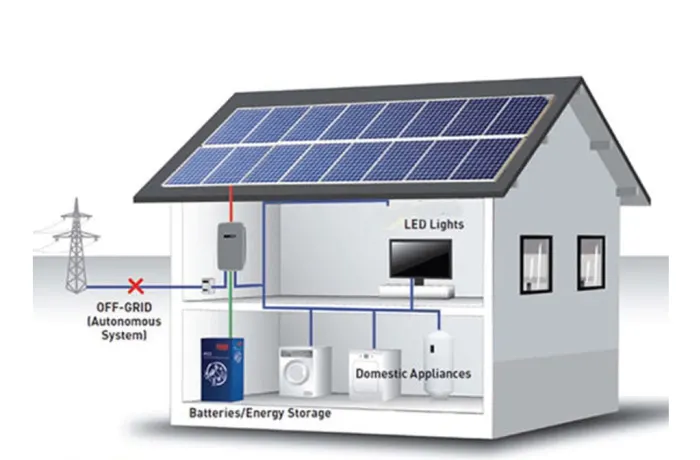
To fully utilize the benefits of solar battery storage for your home, it is important to understand how the charging process works. Solar panels produce electricity which is then directed into the home’s main electrical panel to power appliances, lights, air conditioning, and other devices.
But often, the solar system produces more power than the home needs at any given moment. For example, energy demands are low on a bright, sunny spring day, but panel production is high. In cases like this, the extra electricity generated has nowhere to go without a battery.
With a battery, this extra power can be stored and used later when the home needs it. This is beneficial because it helps offset the power normally drawn from the grid, like at night. The speed at which the battery charges depends on how much extra power is generated by the solar system, which is determined by various factors such as the size of the solar system and current [home electricity](https://www.cpuc.ca.gov/industries-and-topics/electrical-energy/demand-side-management/self-generation-incentive-program#:~:text=The CPUC’s Self-Generation Incentive,side of the utility meter.) demand.
Overall, having a solar battery storage system installed in your home has various benefits and may be a good way to save energy and money. Understanding how the charging process works is key to getting the most out of your investment.
Step 3: DC vs AC Charging
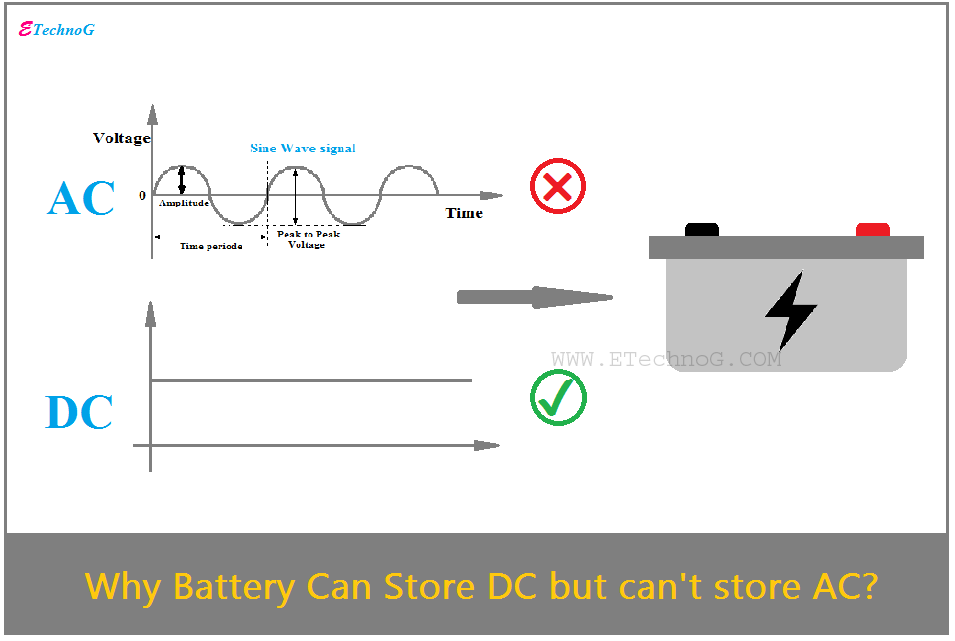
You may wonder why your laptop battery charger has a big box. This is because laptops require direct current (DC) to charge, while homes use alternating current (AC). The box converts the AC power coming from the wall into DC power.
From this, you might wonder what an AC battery is. An AC battery can accept incoming AC power and has a built-in inverter to convert it into DC power. This then charges the battery. When the battery needs to be used, the inverter converts the DC power back into AC so it can be used in the home.
Based on the explanation above, you might think AC batteries are better since they can be used with any solar system. And while this is true, DC batteries have their own advantages. One advantage is that they tend to be more efficient since less power is lost when converting from DC to AC (or vice versa).
Additionally, DC batteries are typically cheaper than AC batteries since they don’t have extra inverter hardware. When deciding which sort of battery to acquire for your house, consider the advantages and drawbacks of each to determine which one is ideal for you.
Step 4: Battery Discharging

In the event of a power outage, a solar battery system can provide backup power to the circuits it is connected to, similar to a generator. This is an important benefit for homeowners as batteries are far better than generators.
Another reason to store energy for later use is to take advantage of utility companies’ time-of-use (TOU) rate plans. Many utility companies will require you to switch to a TOU rate plan if your home is powered by solar panels. This is because these plans more accurately reflect the changes in wholesale power prices throughout the day.
Because the excess energy produced by the panels during the day is less valuable than the electricity received from the grid at night, utilizing a solar battery can help households save even more money by avoiding peak utility prices in the evening.
How Solar Batteries Work with a Hybrid Inverter
Families worldwide are benefiting more and more from solar battery storage. One of the main reasons is that it can be used with a hybrid inverter. This type of inverter converts DC electricity into AC electricity and can convert AC electricity back into DC electricity. So, you wouldn’t need two different types of inverters in your photovoltaic system. This would reduce cost and the amount of space needed to store them.
Another great advantage of having a hybrid inverter is that you don’t need batteries. It can be used with or without battery storage. So, if you want to add solar energy storage at a later time, you can do so without having to replace your inverter.
Overall, hybrid inverters are becoming increasingly popular because of their benefits. If you’re looking into solar power for your home, a hybrid inverter is definitely something you should consider.
5 Significant Advantages of Batteries for Solar Storage

Are you wondering how solar batteries can benefit your home? The following are some of the most significant advantages of utilizing solar batteries:
- Make the Most of Your Power

Solar battery storage systems give you more control over your home’s power usage.
With standard solar power setups, your panels are connected to the grid. If your panels don’t produce enough energy, your home will draw power from the grid. You’ll then have to pay for this energy just like you would if you didn’t have any solar panels.
A solar battery storage system stores excess power in batteries instead of being sold back to the grid. This means that on cloudy days or days when your system doesn’t produce as much power, you can use the stored power from the batteries instead of drawing from the grid.
Solar battery storage systems give you more control over your energy usage and can help you save money on your electric bill.
- Greater Energy Security

In these days of increasingly erratic weather patterns and aging infrastructure, the power grid has become less and less reliable. Homes and businesses that rely solely on grid-supplied power are vulnerable to extended outages, which can be inconvenient and expensive.
One way to increase energy security is to install a solar battery system. These systems store energy generated by solar panels during the daytime, making them available for use at night or during a power outage.
Battery systems can provide enough power to run essential appliances and lights for several hours, giving homeowners peace of mind in knowing they will not be left in the dark during an extended outage.
Furthermore, solar battery systems can assist balance high power costs during peak demand periods, such as hot summer days when air conditioners are operating nonstop. Solar battery systems are an ideal solution for homes and businesses looking for greater energy security.
- Reduce Your Home’s Carbon Footprint
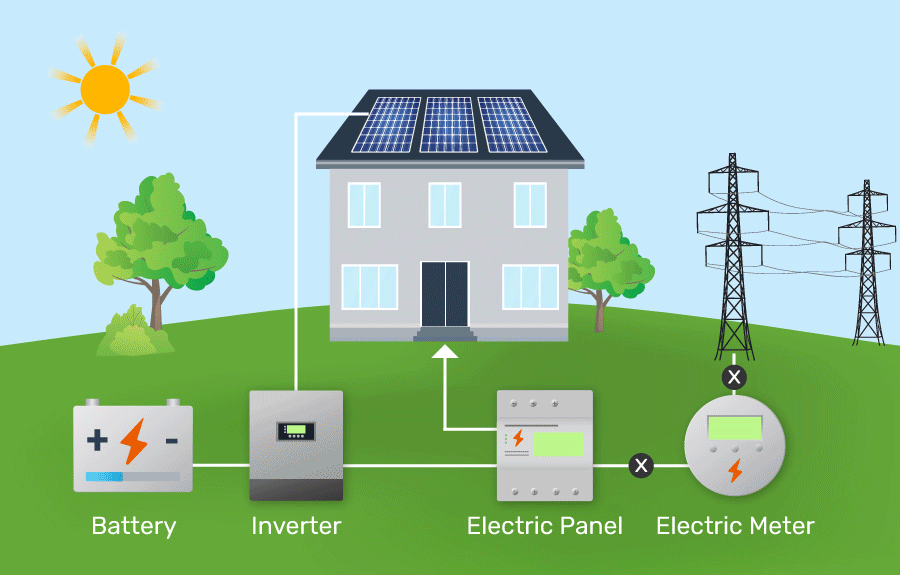
Solar batteries are a critical component of any home solar energy system. They allow you to store energy from the sun and use it later, which reduces your reliance on the grid. This is vital for everyone who wishes to “go green” and lessen their carbon impact.
Solar batteries are also a key part of making your home self-sufficient. You can assist the environment by reducing your reliance on fossil fuels by producing your own power.
- No Noise Pollution

In today’s world, it seems like something is always making noise. Whether it’s the rumble of traffic, the beep of a car horn, or the chatter of a nearby construction site, noise pollution is a constant source of irritation.
However, the problem is often reversed for people who live in rural areas. With few man-made noises to disturb the peace, the sounds of nature can sometimes be overwhelming. Fortunately, solar-powered generators allow you to have the best of both worlds. Unlike traditional generators, solar-powered generators are virtually silent, making them ideal for people who want to enjoy a quiet night in the countryside without sacrificing their creature comfort.
In addition, solar panels and battery storage systems don’t create noise pollution that will bother your neighbours, making them a great choice for anyone who wants to reduce their environmental impact.
- Reduced Electric Bills

A big motivator for people to go solar is the savings on their electric bills. Solar photovoltaic (PV) systems have been getting cheaper and cheaper as technology improves and manufacturing processes are refined. There are also several government incentives in many countries to encourage homeowners to switch to renewable energy sources.
One of the biggest disadvantages of solar PV is that it only creates power when the sun shines. This means you still need to rely on your utility company for power at night or on cloudy days. Energy storage systems can help solve this problem by storing excess solar energy. This can reduce your reliance on the grid and help you avoid expensive peak-hour pricing and other charges from your utility company.
In addition, if you have a battery system, you can sell excess electricity back to the grid! All these factors add up to big savings on your electric bill. So if you’re looking for ways to save money, going solar with an energy storage system is a great option.
